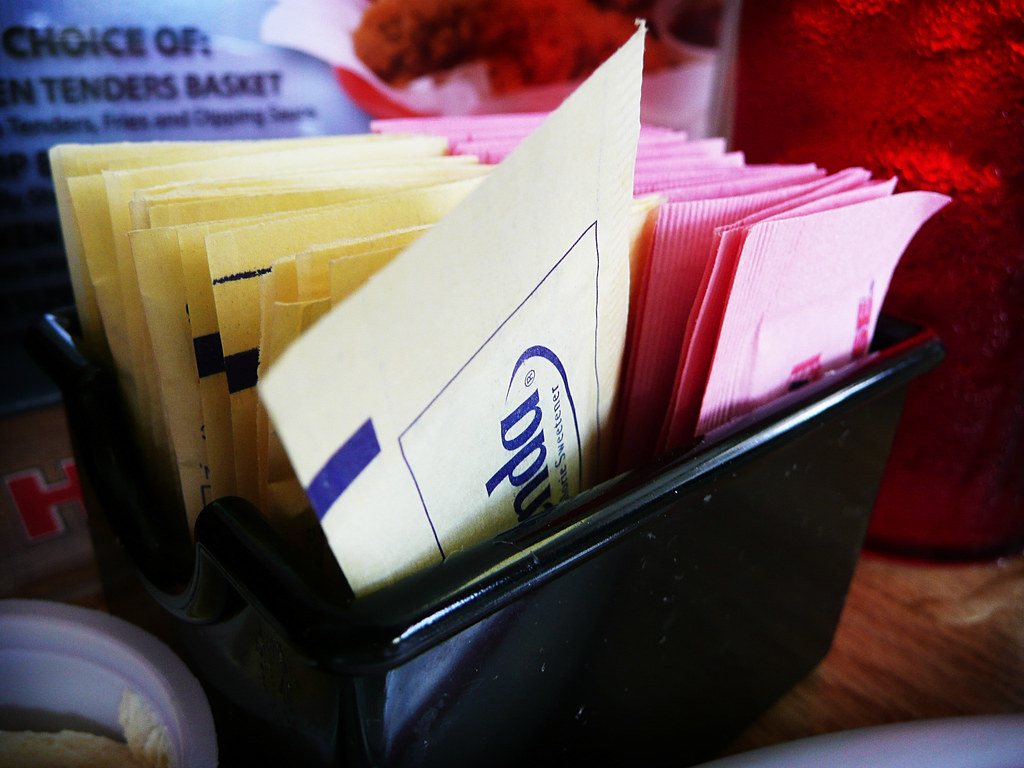The not-so-sweet ways artificial sweeteners harm health

Photo courtesy of flickr.com
The tall glass bottle on the counter of the Ronald Tutor Campus Center’s Coffee Bean brings me a kind of happiness that no words can describe. For me, no coffee drink is complete without at least four teaspoons of that gooey “classic syrup” of straight liquid sugar that I have emptied into my cup more times than I care to admit. But I reason to myself that I just like to add an extra kick to my caffeine in the morning — it’s harmless. Right?
Not quite. Ever since the mass production of food took flight after WWII, the United States has been fighting a battle with sugar ever since mass produced food was introduced to the public at the height of industrialism in the 1900s. According to the U.S. Department of Agriculture, the average American today consumes 156 pounds of sugar a year. According to the NIH, as of 2014, 29.1 million Americans or 9.3 percent of the population, suffer from diabetes. And, in response to America’s collective sweet tooth, we have taken to artificial sweeteners in attempt to bring that number down. Virtually every soda brand comes in a “sugar-free” and “diet,” form, trading in sucrose and glucose for aspartame and sucralose.
Yet, in an ironic twist of fate, the artificial sweeteners that we have grown to rely on as a way to lose weight and cut down on our sugar consumption may actually cause obesity and diabetes.
A study published in Nature in October 2014 revealed that “bad” bacteria love artificial sweeteners as much as we do. The bacteria in our digestive tract come in two main species, Firmicutes and Bacteroidetes, and live in a careful balance in our gastrointestinal tracts. Firmicutes and Bacteroidetes essentially have the same job – to turn energy from food into a form that our bodies can use. The difference is that Firmicutes do their job well, and with the amount of artificial sweeteners Americans now consume, perhaps too well.
If the ratio of Firmicutes and Bacteroidetes are kept in check, metabolism stays constant. Yet, artificial sweeteners, which seem to only boost Firmicute functioning, disrupt the balance. In vitro experiments on mice revealed that as the population of Firmicutes outnumbered that of Bacteroidetes, blood sugar levels and glucose intolerance skyrocketed. To make matters worse, glucose intolerance, when tissues cannot take in sugar from blood, does not just cause diabetes. Sharp increases in blood sugar have been linked to liver and heart disease.
That study left me in shock — could my sweet tooth kill me? Luckily for those of us who see the world through candy-coated glasses, there are a few natural substitutes that can satisfy our daily sugar fix.
Though it might take a while to get used to the taste, agave nectar and date sugar can add the perfect amount of “sweet” to any cup of coffee. And, for college students on a budget, honey and maple syrup are accessible and affordable and can give any drink an added flavor.
